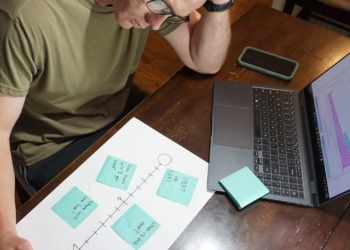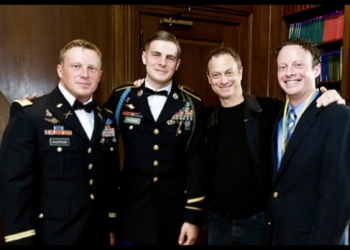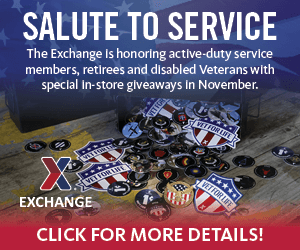A highly educated and trained, combat-wounded Marine veteran struggled to land a job with the United States Postal Service after returning stateside. He told Russell Levy that if it weren’t for his wife and daughter, “he’d put on his blues and eat a bullet.”
Levy, who founded Veterans Transition Support in 2014, said that the Iraq War veteran was the first service member he helped after they exited the military.
“Three weeks later, he had a six-figure job at an aerospace company,” Levy said.
When preparing to enter, or reenter, the civilian workforce, some service members might require “specific assistance based on their character of discharge and post-separation plans,” according to The Military to Civilian Transition 2018 report.
The report states that roughly 25% of veterans, or 5.2 million, are in rural communities with limited opportunities for employment, education, or health care.
Read more: VA launches new high-demand career program
Several organizations offer guidance and interview tips to help in the employment process, including Hire Our Heroes and VeteransEmployment.net. Both suggest researching the company offering an interview and avoiding military jargon when speaking to the hiring manager.
Veteran-specific programs, like the National Sustainable Agriculture Information Service’s Armed to Farm workshop that provides information on “sustainable small-scale farming practices,” also are available to help service members find post-military careers, according to the transition report, as well as an entrepreneurship bootcamp offered through Syracuse University.
Levy said VTS, a nonprofit based in California, helps “bridge the gap” between military and civilian worlds, focusing on career development, Veterans Affairs benefits, and education planning. VTS also provides, among other services, no-cost professional certification training for career match, OSHA, and LEAN certification.
Those certifications, he said, are vital to landing post-service employment, as a common issue veterans face is translating military experience into civilian job skills.
“The easiest way to do that is through certifications in the industry you work in,” Levy said. “That’s how the job market works in general for everybody.”
For example, every veteran is trained in safety, according to Levy, but if they “don’t have the OSHA safety card, it doesn’t count.”
While Levy said he’s seen veterans have success in all industries, he noted “particularly good results” in the safety industry, as well as information insurance and cyber security. The key, he said, is to have “direction and purpose.”
“If you have direction and purpose, you can achieve anything,” Levy said.
In addition to helping veterans prepare for interviews as part of the courses VTS provides, Levy says they also have sample resumes and an interview packet to help them prepare.
“[We] might introduce them to other veterans to have sort of a mock interview,” Levy said. “I’ve always found once they’ve done it once or twice, they’re fine.”
A 2019 Pew Research study found that roughly 48% of veterans didn’t have a job immediately after being discharged but were looking, while 21% sought employment “but not right away.”
The Department of Labor also has regional veteran employment coordinators in every state to assist transitioning service members.
Veteran career podcasts
- Veterans on the Move: Released every Monday.
- Lessons Learned for Vets: Released every Wednesday.
- Beyond the Uniform: Released every Monday.
- The FourBlock Podcast: Released every Monday.
- The Veteran (Semi) Professional Podcast: Released every Thursday.
Read comments

























